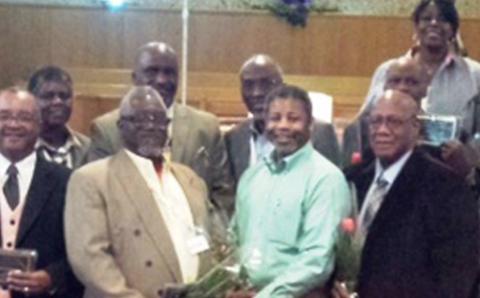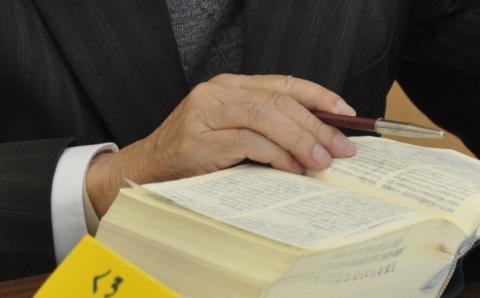Synod 2015 was generally in a good mood, merrily, openly, and trustingly going about the business of approving major changes to our denominational superstructure.
Deliberation was friendly—that is, until the question arose of whether or not to make declarations related to same sex relationships. Rather quickly a “hockey game” broke out.
With a study report on the topic headed for Synod 2016, it seems we’re headed for trouble. Why? Because we can’t avoid our disagreements on whether homosexual practice is always sinful. That fundamental question will dog our discussions on how we are to pastorally deal with same sex relationships in our congregations. We won’t agree on what’s pastoral until we agree on what’s sinful. Synod 2015’s discussions indicated that many no longer agree with the position of the Christian Reformed Church that homosexual practice is always wrong or that such practice always requires church discipline.
If we are unwise, we face years of conflict in which, as with the women’s ordination dispute, we oscillate between two extremes from year to year, based on who has more votes at synod. That will restart the hemorrhage of membership on both “sides.”
We dealt more wisely with the issue of whether remarriage after divorce is always a sin. Until 1956, the CRC taught that those who remarry after divorce live in perpetual adultery because Jesus’ words seem unambiguous. But many began to read Scripture differently. While reaffirming God’s clear will that the marriage covenant is a life-long commitment and recognizing that divorce is always a result of our sinful state, Synod 1980 decided to cede to each council the responsibility of providing appropriate pastoral care in each situation where remarriage was being contemplated, without synod tying councils’ hands.
That “local option” helped us to clearly affirm biblical teaching, leave room for different perspectives on what is or isn’t a sin, and allows churches to exercise pastoral care and discipline in line with our understanding that the CRC confers primary authority on local councils.
Would the “local option” erode our commitment to biblical teaching? No. Scripture teaches emphatically that we must “maintain the unity of the Spirit in the bond of peace” (Eph. 4:3). And it promises that the Spirit will lead us together into all the truth (John 16:13). Determining together God’s will for folks with same sex attraction will take time. It took us 1,700 years to conclude that slavery is always wrong. It took us nearly 1,950 years to conclude that remarriage, though always a result of sin, may not always be a sin. And it took us nearly 2,000 years to agree to disagree on whether it’s sinful to ordain women in the church.
For Jesus’ sake, let’s have the humility, love, and grace to affirm that we may have to reexamine our own certainties in light of what we communally discover in God’s Word.
Synod 2015 demonstrated that we cannot avoid this conversation. I pray that we search Scripture together so humbly and patiently that this time around we stick together as we have once before. That takes lots of risky love—the kind that sent our Savior where we cannot (yet) follow.
God bless us all.
About the Author
Bob De Moor is a retired Christian Reformed pastor living in Edmonton, Alta.









